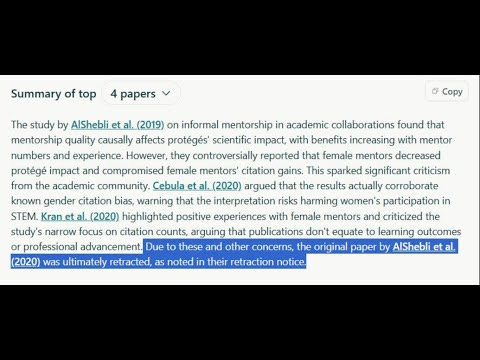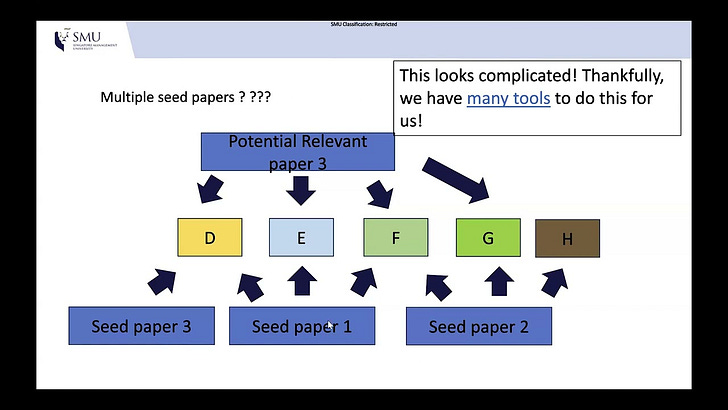
Introduction In my previous post I tested eight academic RAG or RAG‑like tools—Elicit, scite assistant, SciSpace, Primo Research Assistant, Undermind, AI2 Scholar QA, and several "Deep Research" modes from OpenAI, Gemini, and Perplexity—to see how they handled a well‑publicised 2020 paper that has since been retracted : “The association between early‑career informal mentorship in academic collaborations and








